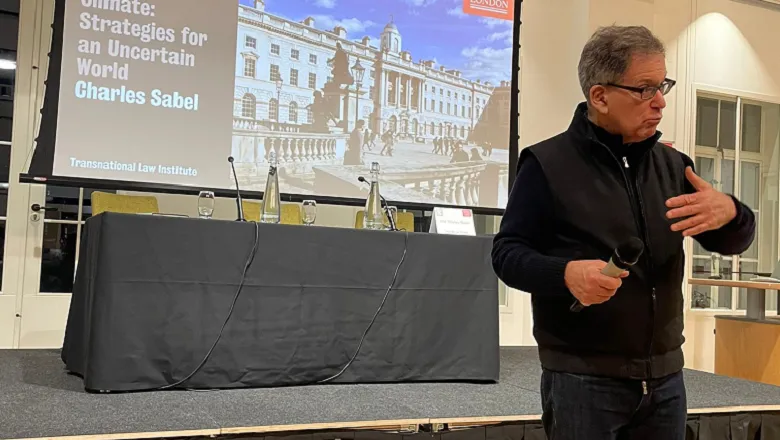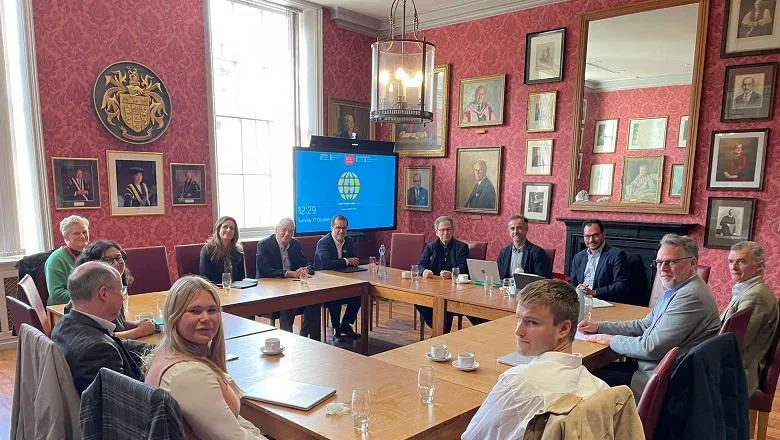Professor Charles Sabel (Columbia University) gave a public lecture as guest of the Transnational Law Institute, and explained what we should learn from successes and failures of international environmental agreements

The Transnational Law Institute welcomed on Monday, the 17th of October, Professor Charles Sabel from Columbia University in the United States to King's College London. Professor Sabel presented his latest book: Fixing the Climate: Strategies for an Uncertain World (co-authored by David Victor) and answered questions from the audience.
This was the second event the Transnational Law Institute held with Professor Sabel on Tuesday, as in the morning he discussed his book in a round-table event with academics and professionals.
According to Sabel and Victor, Global climate diplomacy-from the Kyoto Protocol to the Paris Agreement-is not working. Despite decades of sustained negotiations by world leaders, the climate crisis continues to worsen.

They explain why the profound transformations needed for deep cuts in emissions must arise locally, with government and business working together to experiment with new technologies, quickly learn the best solutions, and spread that information globally. Sabel and Victor show how some of the most iconic successes in environmental policy were products of this experimentalist approach to problem solving, such as the Montreal Protocol on the ozone layer, the rise of electric vehicles, and Europe's success in controlling water pollution.
This experimentalist approach, according to Professor Sabel, encouraged a wave of innovation in those fields, and that made the Montreal Protocol a success, unlike the Kyoto Protocol.
Following the lecture, Professor Sabel answered questions regarding his experimentalist approach, the importance of democratic participation in those processes, and the role of law and lawyers.






